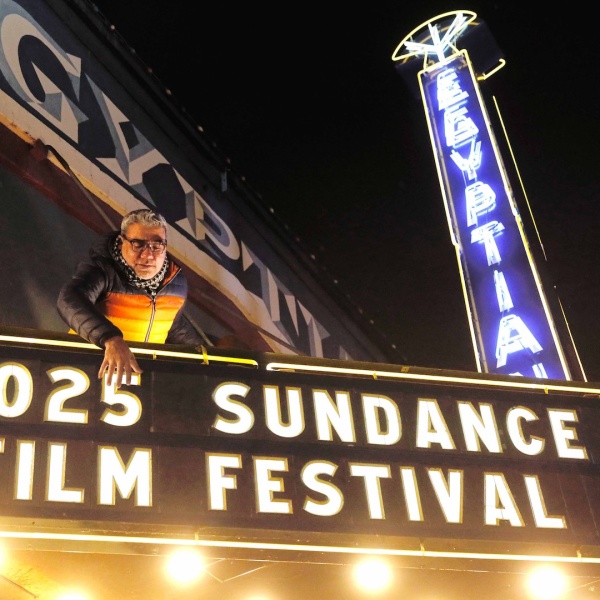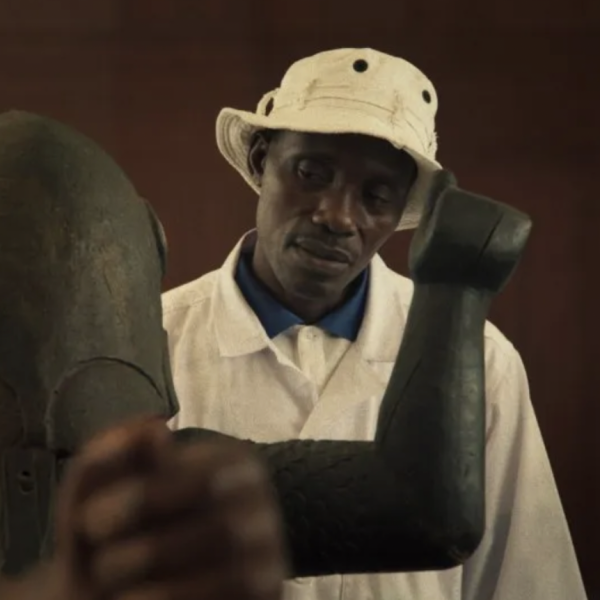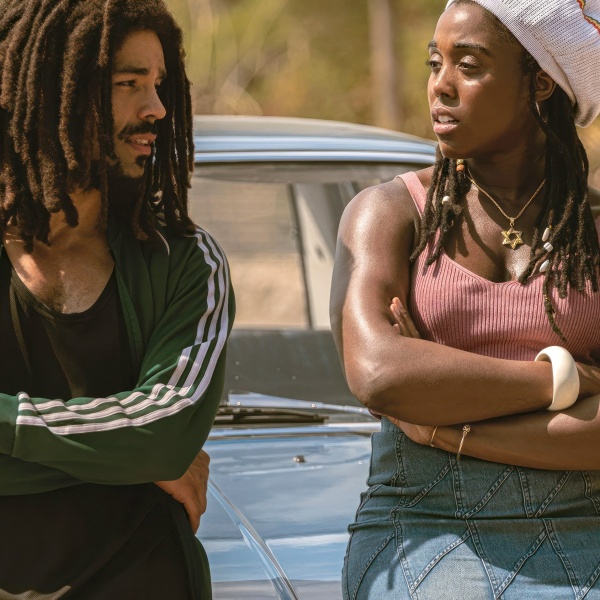
With only four film deep into his career, filmmaker Neil Burger has been amassing a varied body of work. So far he’s done mystical period drama (“The Illusionist“), a pseudo docum-drama about who killed JFK (“Interview With The Assassin“), an post Iraq War indie drama (“The Lucky Ones“), and now his most ambitious work, “Limitless,” a New York-set self-improvement, power-and-influence drama set within the confines of reality-based sci-fi.
In the film, Bradley Cooper plays Eddie Morra, a struggling writer who’s suffering from almost a decade of writer’s block, which is not making his agent and his book deal any happier. Tired of all the waiting and going-nowhere-ness that permeates his life, Mora’s girlfriend (Abbie Cornish) finally bails on their relationship. Just as all seems lost, Mora runs into Vernon (Johnny Whitworth), the slimy brother of his ex-wife (Anna Friel), who introduces him to a FDA-approved self-enhancement drug. Though it turns out — once Mora has taken the magic pill and suddenly becomes his best self and finishes his book in a day — that the drug ain’t FDA approved at all and is actually a top-secret drug which bestows him with the ability to unlock 90% of his brain which allows him to become super enhanced in every way possible. Enter unlimited success, sexual potency, charm and the ability to basically dominate Wall Street by mentally figuring out the stock market like its no thing. And then enter Carl Van Loon (Robert De Niro), New York’s top business magnate who wants to know Mora’s secret. That essentially kicks off the first act which then becomes a cautionary tale with dystopian flavors as Mora struggles to stay on top while his growing addiction begins to destroy his life.
We sat down with Burger recently — he gave us a solid rundown of some of the projects he’s written over the last decade, and an old one — “The Criminals” — which might be surfacing again. We talked “Limitless,” his eclectic career and where its heading, the state of the film industry right now, how this high-concept film opens doors to bigger things, working with Robert De Niro and more. “Limitless” hits theaters in wide release, March 18.
The Playlist: Bradley Cooper said earlier today: “When you make a film you have to find something you can hook into and love for a sustained period of time.” So what’s that kernel, that thing, that hooked you?
Neil Burger: Do you know what I liked a lot and it’s not the main thing in the movie, but I loved that it took place in New York and was kind of a New York story. I mean the movie’s about intelligence and human potential but very much about power and to me power in New York and like I don’t know if I said it before but like it’s like New York as this power center, Manhattan is the big brain. And I liked that he wanted to be an artist, he wanted to be a successful writer in the beginning and then was trying to move up and then moved into the financial world, which again is obviously a big part of New York. And it became sort of this magnetic personality and you know New York’s full of people that are kind of these powerhouse magnetic personalities. And so I liked the idea of you know, portraying this guys journey through those different worlds. Whether it be struggling on the Lower East Side, or in Chinatown where he starts out, to you know kind of going head to head with this Carl Van Loon character whose like George Soros or somebody like that.
It’s got these different sides to it…
Well I like that too, but as far as if you’re asking what I kind of like, that’s really what like held on to me. Because I’m interested in those ideas and then after that I knew there were these visual things I wanted to do as well.
How’d you guys make the switch for the ending?
Well, yeah, I mean the normal kind of movie like that, suddenly it all goes to hell and he goes back to where he began having learned a lesson and things like that. I think in a way the movie, for all we know that’s still ahead of him in the story, but we chose to kind of go a different direction and to twist it and the whole movie, all the way along it’s like what the hell? Which way? Where are we going here? These crazy, off the wall terms and so with the ending we decided that as well and we decided that, you know, what would this character really do and he would consider all that and we thought, he’d just keep going, he will not be stopped. We thought, okay, well what does that mean and how do we go that way and we decided that we would. And it definitely has an ending and a satisfying conclusion but he isn’t quite finished. He may end up being finished and done, but for the arch of the story it’s the way we did it.
Is the message — if there is one — that these things will happen to you and you’ll be granted all these powers but it is open ended.
Look, I don’t think there is a message, but I think that there is, there’s a cost to what he’s doing and the fact that he’s having success, just because he’s having success doesn’t mean that it’s the right thing and he had value as a person when he wasn’t having success, when he was regular Eddie, he had a girlfriend who’s kind of wonderful and actually what ruined his initial relationship with her was his kind of glamming on or not letting go of some fixed idea of success. He wanted to be a writer, maybe that wasn’t in the cards for him. It wasn’t going well, yet he wasn’t letting go of it and actually it was driving him into the…you know down the drain and he lost his girlfriend and he lost everything and then he stumbles onto this drug and kind of has it, but the point is he had value before and now is he just kind of…is he a machine? You know? Is he just a computer that’s plugging in sort of this drug which is software? So there are issues of that as well and what are the limits of his identity?
You’re a writer/director and yet this is the first piece you’ve done that was presented to you.
Yeah, they sent it to me and they said do you want to direct this script.
So that must have been pretty different going in.
Exactly. I’d done three movies before, ‘Interview With an Assassin,’ ‘The Illusionist,’ and ‘The Lucky Ones‘ and I’d written and directed all of those, and I always saw myself…I was going to direct the things I write and when you do that you’re the ultimate authority on that particular movie. When you are directing something, you know I don’t think of it kind of directing for hire, but you know in a way they’re bringing something to me and already exists, it’s a different thing but then I found it completely liberating because it allowed you to be…it allowed me to be purely a director which is, you know, it’s an interpretive role, you just took what was on the page and run with it and make it better, wilder or whatever it needed to be, sometimes when you’re writing something, when you’ve written something you’re stuck with this original idea, which is great, you’re the ultimate authority on this subject but it’s kind of like, I always thought that they’d come in through the door and there’d be a door on the left, you go to the location and the door’s on the right, you’re like I can’t quite get my head around that when you’re just purely directing it you’re like, you’re just seeing everything in an objective way and it actually makes you a better director, potentially. So anyway it was a great experiment to try to do it in that way and so I liked it, I liked it a lot.
Did you guys work on the script with Leslie Dixon?
Oh, we worked on it together and you know I had lots of notes and thoughts about the way it should move and certain scenes that weren’t quite there or didn’t even exist yet and so I worked with Leslie on it and we kind of brought it up and fleshed it out and altered the balance in certain ways and then on top of that visually I had certain ideas like there might be just a line, he takes the pill and then everything becomes brighter and shinier and then I was going to run with that and make it into a whole extended sequence.
Was it difficult for you to do the big visual stuff?
No it was fantastic, and fun you know I’ve always, I mean you can see on one hand there’s movies like ‘Interview with the Assassin’ or ‘The Lucky Ones’ which are very spare and kind of minimal and raw and immediate actually wanting to get right there with the actors and then the Illusionist, you know, is more stylized and heightened, plus it’s a period piece but and this kind of combines elements of both but it certainly has the heightened side of that and I’m always thinking about that stuff. And you don’t want to put it onto a movie or a story that doesn’t, that it’s not right for. You don’t want to take ‘The Lucky Ones’ which is this kind of, you know, this kind of raw emotional story and start doing visual gymnastics on it. But with this, this is like you could put the camera up somebody’s nose or in a glass or whatever it is and it was appropriate, you know? Not that you couldn’t have been, you know be gratuitous as well but I wanted those…so it was fun to do something this heightened, however, I didn’t want to just stick it in a glass to stick it in a glass, you know? I wanted them to be very organic effects and emotionally connected to his experience. I didn’t want it to feel digital, I didn’t want it to feel like we’ve just gone into an effects sequence.
Is there a lot to do?
Usually these days it’s easier to do things that are…you can build them digitally pretty easily but sometimes I wanted them to almost have a hand made or primitive feel, like one of those tiles change on the ceiling, I wanted it to feel like well those things are really…that’s how he’s perceiving things. You know he’s finding, in the strangest kind of places his inspiration, it’s like looking at this upside down and seeing those letters that spell out something that you know it becomes sort of like a eureka moment for you. So I was looking for those kind of events or something like that.
There’s so much going on in his mind, that it’s kind of easy to represent that visually.
Yeah, that’s right. The most important thing was for the audience to be with him emotionally and to perceive the world as he’s perceiving it so it was like, okay, how do you show how he is doing it. And it’s directly like okay, that’s actually how he’s seeing something, and then sometimes it was like a visual representation of it, with this 360 effect, that’s him sort of seeing…being able to see everything. It doesn’t mean he has eyes in the back of his head, it’s kind of a representation but it’s kind of a cool thing that punctuates where he’s at at that moment. 
What was the budget on this one?
It’s got 26 million dollars which is, that’s a lot of, that’s 26 million dollars, it’s a lot of money, but in the Hollywood scale of things it’s at the low end, and you know…
Really? It looks way higher. Those effects can’t be cheap.
I always say it’s like the last cool studio movie because everything’s changing. They’re clamping down, they’re less adventurous with what they’re willing to do, and it was no different from this. People were willing to take a chance on it relatively. But it has some dark qualities, it’s a very different story, it’s about a guy who’s taking a drug even though it’s not about getting high or something like that. But it is, has that quality, so they’re like, well we’re not going to dump a lot of money on this because we don’t know where it’s going. And one of the dangers of this movie, or whatever, the risks in the marketplace for this movie so we got what is, by Hollywood standards, a smaller budget and a really tight schedule and so we were lucky to get it made at all and happy to run with it.
How was it working with Bob DeNiro?
It was great actually. He was actually, very quiet and thoughtful. And smart and what he said was kind of right on and honest actually.
Is he intimidating?
He is not outwardly intimidating but it is intimidating because he’s Robert DeNiro. Really one of my favorite actors of all time, one of the great film actors of all time and so there he is and you’re telling him where to stand or what to do or how to change his performance which he is incredibly…he wants to be directed because he knows it’s part of the process but it’s like who am I to direct him? You know? But he was great. You see on his fact all of his characters, Jake LaMotta and Travis Bickle and you have to kind of like you know stop yourself from doing it and just get down to the work at hand….on a movie with this schedule and moving this quickly you have to be completely prepared or you’re going to miss something. So absolutely you want to know what you’re doing in front of Robert DeNiro.
So you’ve been cranking out the scripts in the last decade?
Well you know you have lots of down time between shooting these movies and so these things come up and you know I have two young kids and they were like, when are you going to make a movie for us and I was like…[‘Mrs. Frisby and the Rats of NIMH‘] came up and it’s a lovely story, kind of like ‘Wind in the Willows‘ so I did it but I don’t know what the next thing is. There’s other things too that I have and really the challenge is like you know I’ve gotten kind of more personal, or maybe that’s the wrong way to put it, but then there are things that are bigger.
Does this open the door to those kinds of things?
Yes it does, and there’s a few things like that story the criminals is kind of, you know it’s sort of mid-budget and I’m sure so is the Bride, but then there are some bigger things than that and you know it’s just such a crazy business right now and it’s hard to…you know you make a movie and it doesn’t get distribution or it gets distribution and nobody sees it.
Filmmakers are putting their personal projects to the side for a moment. Sam Mendes is doing ‘Bond,’ Joe Wright is doing an action-thriller. The climate is weird out there
Yeah, it’s a very funny time right now and because there’s been a contraction it’s been very good, it was a very good sense in the fall that like five or six dramas made a bunch of money, you know ‘The Social Network‘ and ‘The Town‘ and ‘The Fighter‘ and that was great because that’s what then people are like, those movies we’re willing to make them, and unfortunately that’s the way it works. It’s like who’s going to put their money in this movie? You know I’ve got this great movie I want to make and even though I want to make it for a million dollars or a half a million dollars which is really hard to make it that way, but let’s say you want to do that, where are you going to get that money from? You know? Still somebody has to kick in that money and it’s like harder and harder to get. So I think all of these guys, like you said, Sam Mendes and Joe Wright are taking a breather. They’re continuing to make movies but in a sort of safer environment.
So is that something you could consider?
You know it’s one of those things that you’d have to consider…you’d be…I mean unless you’re independently wealthy soon.
You’d be foolish not to.
Yeah I mean it just is what it is, and it’s kind of like you know the Illusionist was successful and it allowed me to make the Lucky Ones which was important to me and very personal to me, which didn’t make a lot of money, for a variety of reasons because it came out at the worst time for…and it was branded an Iraq war movie and things like that, you know I really cared for that movie…it bummed me out because it was like, because we had screened that movie and it really made an impact on audiences you know, we screened it for like military audiences and things like that, and it was a movie, it was an anti-war movie that was aimed at people that were for the war and it was to, it wasn’t just preach to the choir, it was to change people’s minds in a very…in a way that entertained them and kind of got at them in a different way, kind of around the back. And it was successful in that way but nobody wanted to…Lionsgate thought we are going to get killed with this. And so anyway, you make a movie that doesn’t make money and it hurts you on the next one.
Your career has been fairly eclectic so far, is that what we should expect from you in the future?
It is, I mean I’ve got movies that, I’ve got stories that I want to do that take place in space and take place in the old west. So I just like a really good story. There are certain things I probably wouldn’t be the best at doing. But I’m interested in all sorts of different kinds of stories and yeah, and do think of it in very eclectic ways.
Is there someone you’re modeling your career after?
Well if you think of Soderbergh or Ang Lee, those are pretty great filmmakers or even someone like Kubrick was doing all sorts of things.
“Limitless” hits theaters this weekend, March 18, in wide release. — Interview conducted by RP




